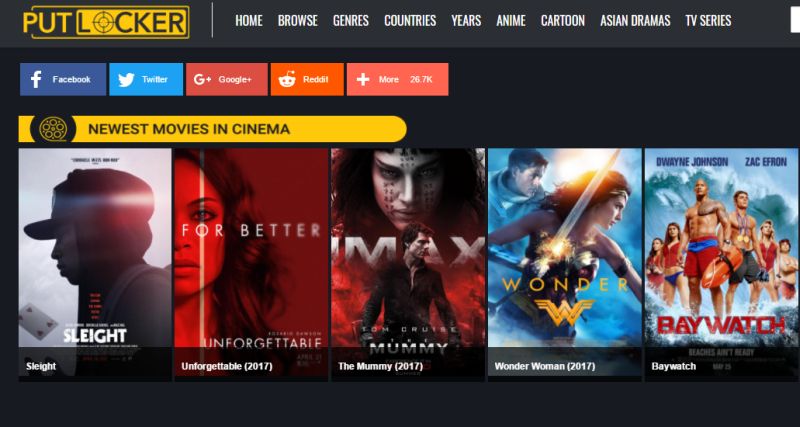There are many websites and services available that let you watch virtually any television program or movie online at any time you want.
Some are paid services, but many of them are free. Does watching the latest Hollywood movie in your living room while it’s still in theatres mean you’re going to get busted or fined?
Probably not.
There was a story in the news this week about a man being arrested in California for uploading the entire film “Deadpool” to his Facebook page just days after it was released. He’s facing potential jail time for copyright infringement, but the five million people who streamed it off his page are in the clear. (Five million ?!? The story didn’t mention just how many Facebook friends this guy has.)
Streaming isn’t the same as downloading. And that’s they legal grey area that most streaming sites occupy.
Popular sites like Putlocker, Solarmoviez, and Sockshare all allow users to watch pretty much anything the want at any time. You can stream thousands of movies and television shows, and aside from a few annoying popups to contend with, they’re free.

The sites themselves are technically legal, because they aggregate the content from other sites that are actually housing the copyright-violating material. So, they serve as search engines that connect you to the files, but don’t store them on their own servers.
Viewers of the pirated content are also not breaking any Canadian laws. It’s only if you upload copyrighted content to the web, or download a pirated copy to your own device, that you cross the line into illegal territory.
Sites like Netflix and CraveTV are legal, of course. Those are paid streaming services that have licenced the programming they offer. However, many people share their passwords to allow others to access the material without paying the monthly fee. A US court ruled last year that sharing your Netflix password is a federal crime, punishable by prison time. Mooching could be a bad idea.
In either case, whether you’re streaming movies from a hub that aggregates pirated material, or skirting the fees for legal streaming services, the content producers aren’t getting paid for their work. So, even when you aren’t technically breaking the law, it may not be ethical to stream free content.
So, that’s a personal choice you have to make.
Currently, the Canadian government is considering imposing a 5-per-cent tax on broadband internet services – similar to what is currently placed on cable and satellite television services. The money would go to the Canadian Media Fund which helps pay for the production of Canadian content for film and TV.
So, that would be paid regardless of what entertainment you stream – as long as you access high-speed internet.


